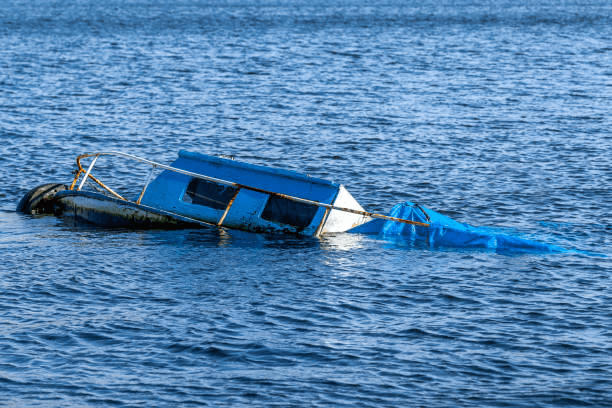Does Boat Insurance Cover Your Boat if It Sinks?

Boating is a beloved pastime for millions of people around the world. Whether you enjoy sailing, fishing, water skiing, or just cruising along the open water, the thrill of being out on the water is unparalleled. However, as a boat owner, you are also responsible for the safety of your vessel and protecting it from unforeseen risks.
One of the most pressing concerns for any boat owner is the possibility of their boat sinking. In this article, we will delve into the world of boat insurance and explore the intricacies of whether boat insurance covers your precious vessel in the unfortunate event of its sinking.
Understanding Boat Insurance in Branson, MO
Boat insurance, similar to a car or home insurance, is designed to protect you financially from unexpected and costly events. These policies are tailored to the unique risks that boat owners face. It is essential to understand that boat insurance typically falls into two main categories: “hull insurance” and “liability insurance.”
- Hull Insurance: Hull insurance, often referred to as “physical damage coverage,” is the aspect of boat insurance that deals with damage to the boat itself. Hull insurance can cover a wide range of incidents, including sinking, collisions, fires, vandalism, and more. While boat owners are not legally obligated to carry hull insurance, it is a wise choice to protect your investment, especially if you’ve taken out a loan to purchase your boat.
- Liability Insurance: Liability insurance, on the other hand, covers your legal obligations if you cause damage to someone else’s property, injure another person, or cause damage to the environment while operating your boat. This part of boat insurance is often legally required in many states and countries.
Does Boat Insurance Cover Sinking?
Now, let’s address the main question: does boat insurance cover your boat if it sinks? The answer is not a straightforward “yes” or “no.” Instead, it depends on various factors, including the type of coverage you have, the circumstances of the sinking, and any policy exclusions. Here are some key points to consider:
-
Hull Insurance:
Most boat insurance policies that include hull coverage will indeed cover the sinking of your boat. However, there may be specific conditions that you must meet to qualify for coverage. For example, insurers may require that you take reasonable precautions to prevent sinking, such as properly maintaining the boat and using appropriate safety equipment.
-
Exclusions:
All boat insurance policies have exclusions, which are situations or circumstances not covered by the policy. Some policies may have exclusions related to sinking, such as damage caused by wear and tear, gradual deterioration, or improper maintenance. It’s crucial to read and understand these exclusions in your policy.
-
Investigating the Cause:
Insurers will typically investigate the cause of the sinking. If the sinking resulted from a covered peril, such as a collision, storm damage, or equipment failure, your boat insurance is more likely to provide coverage. However, if the sinking is due to negligence on your part or falls under an exclusion, your claim may be denied.
-
Agreed Value vs. Actual Cash Value:
It’s essential to understand whether your boat insurance policy provides “agreed value” or “actual cash value” coverage. Agreed-value policies pay out the agreed-upon amount when the policy is written, while actual cash-value policies consider depreciation. This can significantly affect the amount you receive in the event of a sinking.
-
Deductibles:
Boat insurance policies often have deductibles, which are the amount you must pay out of pocket before the insurance coverage kicks in. Be aware of your deductible, as it can impact your out-of-pocket expenses in the event of a sinking.
-
Salvage and Recovery:
In the aftermath of a sinking, insurance policies may also cover the cost of salvaging or recovering the vessel. This can be a significant expense, so understanding your policy’s salvage coverage is important.
Conclusion
In conclusion, boat insurance does typically cover your boat if it sinks, provided the sinking is a result of a covered peril and not due to negligence, wear and tear, or policy exclusions. As a responsible boat owner, it’s essential to choose a comprehensive insurance policy that aligns with your needs and to adhere to proper maintenance and safety practices to minimize the risk of a sinking.
Remember to read and understand your insurance policy, including any exclusions, deductibles, and coverage limits, to ensure you have the necessary protection for your valuable asset. Ultimately, having boat insurance in place can offer peace of mind and financial protection, allowing you to continue enjoying your time on the water with confidence
